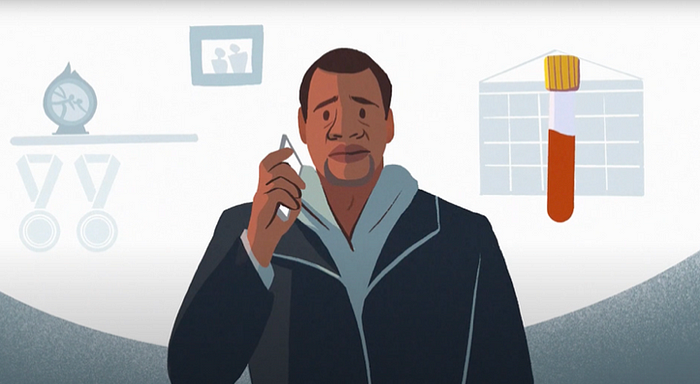Here’s a look at some of the history that has led to distrust, the importance of clinical trial diversity, creating lifelines for marginalized patients, and helping patients to access tomorrow’s medicine today.
By Tamara Lobban-Jones, Founder of DHH. Board of Director at Lazarex Cancer Foundation
Diversity in clinical trials benefits everyone in ways that cannot be overlooked. Inclusion of a wide variety of races, ethnicities, and genders is paramount to improving and refining cancer treatments and other treatments for all patients. Here’s a look at some of the history that has led to distrust, the importance of clinical trial diversity, creating lifelines for marginalized patients, and helping patients to access tomorrow’s medicine today.

History of Distrust
As a Black, Indigenous, and People of Color (BIPOC) individual and a woman, diversity in clinical trials reminds me of its unsettling past that has led to a history of distrust for some communities and families. A history of trauma from clinical trials has been passed down from generation to generation in many BIPOC families. Some of the issues that led to distrust include the withholding of life-saving syphilis treatment in the Tuskegee experiment; lack of informed consent like Henrietta Lacks’ HeLa cells used for cancer research; rapid spread of smallpox in Native Americans from colonists; and overall discrimination and unethical treatment of Black, Latina/Latino, and Native American people. Fortunately, new laws were created after some trials or exclusion of certain groups in clinical trials. Informed consent and the Belmont report following Tuskegee and the NIH Revitalization Act of 1993 to include women in clinical trials were two vital instigators toward positive change for clinical trial diversity and inclusion.

Importance of Clinical Trial Diversity
Clinical trial diversity is vital for scientists who are developing drug treatments for cancer patients to help create optimal treatments for all no matter race, ethnicity, or gender. Dr. Gary Puckrein of the National Minority Quality Forum is a key voice in underscoring the importance of clinical trial diversity. Dr. Puckrein has touched base on the many accounts that have affected a diverse group of people such as women, the Black community, and more. In an interview conducted by DHH for Patient Empowerment Network blog Diversity in Clinical Trials Benefits Everyone, he explained how women were excluded from clinical trials in the past.
“Back in the 1990s, we didn’t recruit women into clinical trials, and so there was a big struggle to make sure that clinical trials were diverse by gender. Back then the assumption was if you have a bunch of men in the trial, women would react the same way that men do to the medications or the disease pathology would be the same and so, why would you need to have women in trials?” Dr. Puckrein also explained the history of mistrust in clinical trials within the Black community. “In the African-American community, there are fears that came out of the Tuskegee experiment where therapy was withheld from African-Americans who were suffering from syphilis for no particular reason and it has an awful impact on their lives and so, that’s a deep scar in the African-American community about participating in clinical trials.”
After this breach of trust that withheld syphilis treatment from the test subjects, some regulations or reports like the Belmont Report followed. Coming to light from monthly discussions spanning almost four years and intensive deliberation that took four days in 1976, the Belmont Report specifies basic ethical guidelines and principles that call out ethical issues arising from research conducted with human test subjects. This distrust still exists for many in BIPOC communities that is seen and/or exacerbated in healthcare issues like access to care, mental health, and maternal health disparities.
Creating Lifelines for Marginalized Patients
Creating lifelines for marginalized patient communities with limited support has become a focus for some patient advocacy organizations. Through the lenses of these lifelines, we can all gain tremendous knowledge about how to change things that are not working and how to continue with successful efforts to help BIPOC patients and other underserved patients.
One great example is Lazarex Cancer Foundation, working to improve the outcomes in cancer care. LCF works toward giving hope, dignity, and life to advanced stage cancer patients and the medically underserved by providing assistance with costs for FDA clinical trial participation, identification of clinical trial options, community outreach, and engagement. LCF provides resources for cancer patients who have been told they have no other options, but who are not yet done with their journey in life and refuse to give up. LCF takes pride in removing barriers to accessing tomorrow’s medicine today.
In Lazarex Cancer Foundation’s Clinical Trial Chronicles series, four BIPOC patients are profiled sharing how they overcome obstacles to accessing their clinical trial. Cancer patients Cassandra, Marc, Nora, and Renita share their stories of obstacles they encountered in clinical trials and the tools that Lazarex Cancer Foundation provided to support them in their cancer journeys.

Helping Very Important Patients (VIPs) Access Tomorrow’s Medicine Today
While all have varied journeys, cancer patients need to feel empowered to ask questions at the outset. In Lazarex’s Clinical Trial Chronicles, prostate cancer survivor and Very Important Patient (VIP) Marc Holland shares, persistence is key and there are no silly questions. “A clinical trial was never mentioned until the end of my treatment. It’s important to press your doctor about their knowledge of what’s available.” According to a research literature review, Black men are disproportionately affected by prostate cancer, with earlier disease presentation, more aggressive disease, and higher mortality rates. With Black men having less access to treatment and experiencing longer delays between diagnosis and treatment, we must do better in closing this gap.

Lazarex’s community-centered outreach approach allows patients like Marc, and thousands more, to tap into life-extending resources. The role that Lazarex plays is helping patients to the next bridge in their care, by creating a lifeline. These acts of moving patients to their next bridges are likely to have provided families with many more years together that they wouldn’t have gotten otherwise.
These bridges also help to remove barriers to increase diversity in clinical trials for improved cancer treatments and other treatments for all. Patients, patient advocates, and advocacy groups must continue shining the light to increase awareness about clinical trial diversity to keep moving the wheels forward past the history of distrust and to positive change.
Sources
Diversity in Clinical Trials Benefits Everyone. Patient Empowerment Network website. Accessed November 1, 2022. https://powerfulpatients.org/2020/05/18/diversity-in-clinical-trials-benefits-everyone/
The U.S. Public Health Service Syphilis Study at Tuskegee: Research Implications. Centers for Disease Control and Prevention website. Accessed November 1, 2022. https://www.cdc.gov/tuskegee/after.htm
Policy of Inclusion of Women in Clinical Trials. Office on Women’s Health website. Accessed November 1, 2022.https://www.womenshealth.gov/30-achievements/04
Clinical Trial Chronicles. Lazarex Cancer Foundation website. Accessed November 1, 2022.https://lazarex.org/clinical-trial-chronicles/
James W. Lillard Jr., Kelvin A. Moses, Brandon A Mahal, Daniel J. George. Racial disparities in Black men with prostate cancer: A literature review. National Library of Medicine website. Accessed November 1, 2022. https://pubmed.ncbi.nlm.nih.gov/36066378/
In retaining editorial control, the information produced by Diverse Health Hub does not encapsulate the views of our sponsors, contributors, or collaborators.
Importantly, this information is not a substitute for, nor does it replace professional medical advice, diagnosis, or treatment. If you have any concerns or questions about your health, you should always consult with a healthcare professional.




